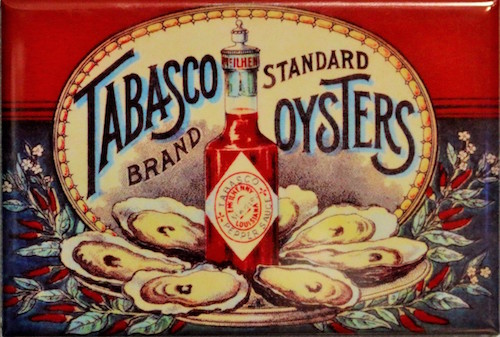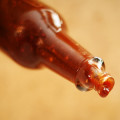If you’ve ever suffered food poisoning from tainted raw oysters, as your editor has (it was an horrendous experience), read on. A team of scientists from the Louisiana State University Medical Center has reported a series of tests on a bacterium, Vibrio vulnificus, found in some raw oysters that causes symptoms ranging from mild diarrhea to dangerous blood poisoning. Some of the suggested oyster treatments ranged from adjusting the storage temperature downward, to heat-shocking them, to zapping them with radiation.
Enter hot sauce. At the American Society for Microbiology meeting last October, the LSU scientists recounted their experiments with test tubes full of oyster bacteria. Ketchup added to the test tubes had little effect. (“That doesn’t surprise me,” wrote syndicated columnist Calvin Trillin, “When you eat ketchup, you can tell that nothing much is going on.”)
Lemon juice worked “moderately well,” as did horseradish. But straight hot sauce from a bottle killed all bacteria in one minute flat. Even diluted sixteen to one, the hot sauce killed all the bacteria in five minutes.
“Some of the findings were a little astonishing to us,” said Dr. Kenneth Aldridge, one of the researchers. “We had no idea these condiments would be so powerful.” They also tested three other varieties of Vibrio bacteria, as well as E. coli, shigella, and salmonella. Hot sauce killed them all.
If seafood lovers ever needed a reason for using hot sauce, they have it now. Is this the future for sushi and sashimi?
“As somebody who eats a lot of hot food, I was greatly encouraged by the LSU results, but I’d like to know about even more diseases I’m protecting myself from when I pop a few peppers,” wrote Calvin Trillin. “I would love to know if hot stuff can stave off, say, the dropsy or housemaid’s knee.”
Hot Sauce Detoxifies Raw Oysters












